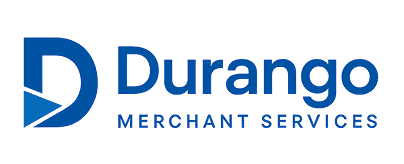Review
In-Depth Analysiss
4.6
Price
Ease of Use
Features
Support
Overview
Host Merchant Services (HMS) is a U.S.-based payment processor that positions itself as a customer-first alternative in an industry often criticized for hidden fees and rigid contracts. Founded with a mission to make merchant services transparent and affordable, the company offers solutions for businesses ranging from small retail stores to large e-commerce brands. Its product lineup covers credit and debit card processing, point-of-sale (POS) systems, e-commerce gateways, mobile payments, and value-added tools like gift cards and loyalty programs.
HMS emphasizes interchange-plus pricing, a structure often favored for its transparency and predictability. Unlike many processors that push long-term, non-cancellable contracts, HMS markets its services with competitive rates and fewer restrictive terms, which can appeal to newer businesses that need flexibility. The company works with merchants across multiple industries, including hospitality, healthcare, professional services, and e-commerce.
Part of HMS’s appeal lies in its promise of personalized service. Their support team is promoted as being U.S.-based and accessible, which is attractive for merchants frustrated by outsourced or inconsistent help desks. The service suite includes tools that support both in-person and remote transactions, with hardware and software designed to integrate smoothly into existing workflows.
While HMS promotes affordability and high-quality service, like any processor, it has strengths and limitations that become clearer when looking at real-world performance, integration capabilities, pricing, and customer feedback. This review will examine those factors to help businesses decide whether HMS aligns with their operational and financial goals.
Company Background and Reputation
Host Merchant Services was founded in 2009 and is headquartered in Newark, Delaware. The company entered a competitive market dominated by large, well-established processors, aiming to differentiate itself through transparency and customer care. From the start, HMS positioned itself as a challenger brand — one that actively addressed the mistrust many small businesses have toward payment processors.
The company’s reputation benefits from its Better Business Bureau (BBB) accreditation and an A+ rating, which reflects a positive approach to customer complaints and issue resolution. Reviews from merchants often mention clear pricing disclosures and the absence of aggressive sales tactics, two areas where many processors fall short. HMS also has a record of receiving industry recognition for its customer service approach.
Despite its relatively modest size compared to major industry players, HMS has maintained steady growth by targeting underserved small-to-mid-sized businesses while still having the technical capacity to accommodate higher-volume merchants. Their business model emphasizes relationship building rather than purely transactional interactions, which can be a deciding factor for merchants who value direct and personalized communication.
However, as with any service provider, reputation is nuanced. While many reviews are positive, there are occasional complaints regarding specific integration challenges, funding timelines, or misunderstandings about certain fees. These are not unusual for the industry but are worth noting for businesses that expect flawless onboarding.
Overall, HMS stands out as a smaller but well-regarded processor with a strong service ethos, appealing to those seeking a more transparent and personable relationship than they might find with larger, more corporate providers.
Core Payment Processing Solutions
HMS offers a broad range of payment processing solutions designed to handle in-person, online, and mobile transactions. At its core, the company provides credit and debit card acceptance for all major brands, including Visa, Mastercard, American Express, and Discover. Processing can be done through traditional countertop terminals, integrated POS systems, or mobile readers, allowing merchants to adapt their setup based on their business model.
For in-store businesses, HMS provides EMV-compliant hardware and contactless payment capabilities, enabling transactions via tap, chip, or swipe. These systems are also compatible with NFC wallets like Apple Pay and Google Pay, reflecting the shift toward touchless transactions.
Online merchants can use HMS’s secure payment gateway to accept card-not-present transactions. This gateway supports recurring billing, custom invoicing, and integration with popular e-commerce platforms. The company also accommodates ACH payments, which can be valuable for service providers and subscription-based businesses.
Mobile processing solutions cater to merchants who operate in the field, such as contractors, delivery services, or event vendors. These mobile systems combine card readers with app-based transaction management, ensuring that payment acceptance is possible wherever there’s an internet connection.
HMS also provides real-time transaction reporting and analytics through its back-office portal, giving merchants visibility into sales trends and payment activity. The overall focus is on flexibility — allowing businesses to select the tools that align with their operational needs without forcing a one-size-fits-all setup.
Point-of-Sale (POS) Systems and Hardware Options
Host Merchant Services offers a variety of POS systems and hardware to fit the needs of different business environments. For small retailers or service providers, compact countertop terminals with EMV and contactless capabilities provide a simple, secure solution. Larger merchants can opt for full POS systems that integrate payment acceptance with inventory management, employee tracking, and sales reporting.
Popular POS options offered by HMS include Clover and Vital systems, both known for their scalability and wide range of compatible apps. Clover, in particular, is a versatile choice for businesses looking for hardware that can be customized with add-ons, from kitchen display systems for restaurants to customer-facing displays for retail.
HMS also supports mobile card readers for smartphones and tablets, which is essential for businesses that operate outside a traditional storefront. These devices are lightweight, easy to use, and connect via Bluetooth or headphone jack, enabling on-the-go payment acceptance.
For e-commerce or hybrid businesses, POS systems can integrate with online sales platforms to ensure consistent inventory tracking and unified reporting. This reduces manual reconciliation and provides a complete picture of both in-store and online transactions.
In terms of reliability, HMS’s hardware offerings are sourced from reputable manufacturers and are regularly updated to meet evolving payment standards. The variety ensures that whether a merchant needs a simple credit card terminal or a robust all-in-one POS system, HMS can supply equipment that fits both their budget and operational complexity.
E-commerce and Online Payment Features
E-commerce is a major focus for HMS, and the company provides a secure payment gateway that integrates with numerous shopping carts and platforms such as WooCommerce, Shopify, and Magento. The gateway allows merchants to accept credit and debit cards, ACH payments, and alternative payment methods directly through their websites.
A key feature for online merchants is recurring billing, which is useful for subscription-based services or membership programs. HMS’s system enables automatic billing cycles, helping businesses maintain steady cash flow without manual intervention. Invoicing tools are also available, allowing merchants to send secure, customized payment requests to customers via email.
Security is prioritized with tokenization and encryption to protect sensitive customer data during transactions. The gateway is also PCI DSS compliant, ensuring merchants meet industry security standards. For businesses that require more control, HMS offers an API for custom integrations, enabling developers to tailor payment functionality to specific operational needs.
Fraud prevention tools, including address verification and CVV matching, help reduce chargebacks and fraudulent transactions. Additionally, reporting and analytics capabilities within the gateway give merchants insights into sales patterns, payment trends, and customer behaviors.
The flexibility of HMS’s e-commerce offerings means that whether a business is launching its first online store or upgrading an existing one, the company can provide a payment infrastructure that scales alongside growth.
Merchant Account Setup and Onboarding Process
The process of setting up a merchant account with HMS is straightforward compared to some competitors. Merchants begin by completing an application that includes business details, processing history, and banking information. HMS conducts underwriting to assess risk, a step common to all payment processors, which typically takes a few business days.
Once approved, merchants receive their hardware (if ordered) and login credentials for the back-office portal or gateway. HMS provides setup guidance, including hardware installation instructions and software configuration assistance. For merchants using integrated POS systems, HMS can coordinate with vendors to ensure a smooth integration process.
One advantage HMS promotes is its willingness to work closely with small businesses that might not have extensive processing histories. While approval is not guaranteed for all applicants, the company’s approach is generally more flexible than some larger processors that focus heavily on established high-volume merchants.
During onboarding, merchants can access training resources, both in written form and via live support, to ensure they understand how to operate their systems and manage transactions. This reduces the learning curve and helps new users avoid mistakes that could lead to payment delays.
Overall, HMS’s onboarding process balances thorough risk assessment with responsive support, aiming to get merchants operational quickly without sacrificing compliance or security.
Pricing Structure and Contract Terms
HMS uses an interchange-plus pricing model, which is widely considered one of the most transparent in the industry. Under this structure, merchants pay the actual interchange rate set by the card networks plus a fixed markup from HMS. This allows businesses to see exactly how much is going to the card networks versus the processor.
Monthly fees vary depending on the services used but are generally competitive. Merchants may also encounter costs for hardware purchases, PCI compliance, and certain optional features. Importantly, HMS does not impose long-term, multi-year contracts by default. Instead, agreements can be structured with more flexible terms, often including month-to-month arrangements.
Early termination fees, if applicable, are disclosed upfront, but in many cases, merchants can avoid them entirely by choosing non-binding agreements. This flexibility can be valuable for newer businesses that do not want to be locked into a long-term relationship while their needs evolve.
While interchange-plus pricing is a strength, it still requires merchants to understand their statements to ensure they are optimizing costs. Businesses processing lower volumes might find that per-transaction fees feel higher compared to some flat-rate processors.
In short, HMS’s pricing model promotes cost transparency and flexibility, though merchants should still review the full fee schedule to ensure it aligns with their budget and sales volume.
Security and Compliance Standards
Security is a core part of HMS’s service offering. All systems are PCI DSS compliant, ensuring merchants meet the industry’s baseline for secure card data handling. HMS also provides assistance with annual PCI certification, including self-assessment questionnaires and vulnerability scanning when required.
The company uses point-to-point encryption (P2PE) and tokenization to protect sensitive payment information from interception or misuse. This applies to both in-person and online transactions, reducing the risk of data breaches.
Compliance support extends beyond security measures. HMS keeps merchants informed about evolving industry regulations, such as EMV standards for chip cards and changes to PCI requirements. This proactive approach can help businesses avoid fines or service disruptions caused by non-compliance.
While HMS’s security offerings are strong for its size, some merchants may require more advanced fraud detection or AI-driven risk analysis, which might necessitate third-party tools. However, for the majority of small to mid-sized businesses, HMS provides a robust foundation for secure and compliant payment processing.
Customer Service and Support Experience
One of HMS’s most promoted differentiators is its customer service. Support is U.S.-based and available via phone, email, and live chat. Business hours cover the standard workweek, and emergency assistance is available for critical issues outside normal hours.
HMS also provides onboarding support, system training, and troubleshooting help for both hardware and software issues. Documentation and FAQs are available online for self-service, though the personal touch of live representatives is a core part of their appeal.
While feedback is generally positive, occasional reports mention longer-than-expected resolution times for complex technical issues, particularly when third-party integrations are involved. This is a common challenge across the industry, as some problems require coordination with outside vendors.
Overall, HMS’s customer service reputation aligns with its branding as a client-focused provider. For businesses that value accessible, knowledgeable support over purely automated systems, this is a strong point in HMS’s favor.
Integrations and Software Compatibility
HMS’s systems are designed to integrate with a wide range of third-party platforms. This includes e-commerce systems like Shopify, Magento, WooCommerce, and BigCommerce, as well as accounting tools like QuickBooks. Such integrations streamline operations by reducing the need for manual data entry and ensuring accurate record-keeping.
POS integrations are available for popular systems such as Clover and Vital, allowing merchants to merge payment processing with inventory tracking, employee management, and reporting. This is particularly useful for multi-location businesses or those managing both online and in-store sales.
HMS’s payment gateway offers API access for custom integrations, enabling businesses with unique requirements to build tailored payment experiences. This flexibility benefits industries like subscription services, on-demand platforms, or niche retail.
However, integration complexity varies depending on the platforms involved. While many standard systems connect seamlessly, certain custom setups may require additional development time or third-party middleware. HMS provides technical assistance during integration but relies on merchants or developers for more specialized builds.
In terms of compatibility, HMS’s openness to multiple platforms gives merchants freedom to choose the software that best fits their business without being locked into proprietary systems.
Special Features and Value-Added Services
Beyond core processing, HMS offers several features that enhance merchant operations. Gift card programs allow businesses to issue branded cards, which can drive repeat business and increase customer loyalty. Loyalty programs themselves can be customized to reward frequent shoppers, helping strengthen long-term relationships.
Cash discount processing is another option, enabling merchants to offer reduced prices for cash payments while offsetting card processing costs. This can be appealing for businesses in competitive markets where margins are tight.
HMS also provides advanced reporting and analytics through its merchant portal. These tools allow merchants to track sales performance, identify peak transaction times, and monitor customer behavior. Such insights can guide staffing decisions, marketing strategies, and inventory management.
Additionally, HMS offers ACH processing for businesses that handle large transactions or recurring billing without needing credit card networks. This can reduce costs for service providers, medical offices, or membership-based organizations.
These value-added services help HMS differentiate itself from processors that focus solely on basic transaction handling. While not all merchants will use every feature, having them available increases the platform’s flexibility and long-term usefulness.
Performance and Reliability
Processing speed and uptime are critical in merchant services, and HMS maintains a reliable infrastructure to ensure smooth operations. Transactions are generally processed within seconds, and system uptime is competitive with industry standards.
For in-person payments, EMV chip transactions are quick and stable, while contactless payments are processed almost instantly. Online transactions benefit from the payment gateway’s optimization for multiple browsers and devices, reducing cart abandonment due to payment failures.
Funding timelines are typically one to two business days, depending on the merchant’s bank and account type. Same-day funding may be available for certain merchants, though additional fees might apply.
While rare, some merchants have reported delays in deposit timelines during peak seasons or when fraud prevention measures trigger account reviews. This is a common safeguard across the industry but can still be disruptive if unexpected.
Overall, HMS provides performance levels that are well-suited for small and medium-sized businesses, with infrastructure that can scale as transaction volumes increase.
Pros
- Transparent interchange-plus pricing model.
- Flexible contract options, including month-to-month agreements.
- Strong customer service reputation with U.S.-based support.
- Wide range of integrations and compatible hardware.
- Comprehensive security and compliance tools.
Cons
- Some advanced fraud prevention features require third-party tools.
- Funding delays possible during risk reviews.
- Limited international processing capabilities compared to larger processors.
- Same-day funding not universally available.
Ideal Business Types for Host Merchant Services
HMS’s combination of transparent pricing, flexible contracts, and strong support makes it a good fit for small-to-mid-sized businesses that value clear cost structures and personalized service. Retail shops, restaurants, and service-based businesses can benefit from its POS options and payment versatility.
E-commerce merchants will appreciate the secure gateway, recurring billing, and broad platform integrations. HMS also works well for professional services, healthcare providers, and membership organizations that need ACH processing or invoicing tools.
While larger enterprises could use HMS, some may find its feature set less robust than enterprise-grade processors, particularly for international operations. However, for U.S.-based companies focused on domestic transactions, HMS delivers a solid balance of affordability, reliability, and service.
Final Verdict
Host Merchant Services offers a compelling option for businesses that want transparency, flexibility, and responsive support in their payment processing provider. Its interchange-plus pricing and month-to-month contracts help reduce the long-term financial risk often associated with merchant accounts. The company’s blend of POS systems, e-commerce capabilities, and value-added features allows it to serve a variety of industries without locking merchants into restrictive hardware or software. While it may lack some enterprise-level capabilities and advanced fraud detection out of the box, these limitations are minor for most small-to-mid-sized businesses. For merchants seeking a balance between cost-effectiveness and reliable service, HMS is worth serious consideration. Its track record for customer satisfaction, paired with competitive pricing, positions it as a trustworthy partner in the payment processing space.
Payment Depot
Comparisons
VS


VS


VS


VS



